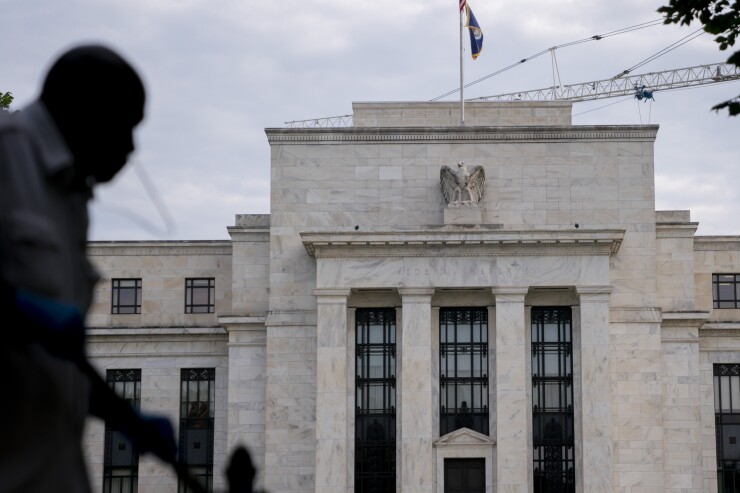WASHINGTON — Banking regulators will let the temporary capital relief provided to banks at the outset of the pandemic expire at the end of March as scheduled, a setback for the banking industry and a win for Democrats.
The Federal Reserve last spring allowed bank holding companies subject to the supplementary leverage ratio to exclude U.S. Treasury securities and deposits at Federal Reserve banks from the measure of capital relative to assets.

The Federal Deposit Insurance Corp. and the Office of the Comptroller of the Currency later joined the Fed in providing the same relief to banks, though accompanied with restrictions on shareholder payouts.
The exemptions were meant to free up resources to make loans and to enable banks to absorb an influx of Treasurys, but received pushback from some who expressed concern about banks shedding capital in the middle of a crisis.
Prominent Democrats, including Senate Banking Committee Chairman Sherrod Brown of Ohio and Sen. Elizabeth Warren of Massachusetts, have argued that a further capital reprieve is inappropriate as long as banks continue to pay dividends to their shareholders.
“The banks’ requests for an extension of this relief appear to be an attempt to use the pandemic as an excuse to weaken one of the most important ... regulatory reforms,” put in place after the financial crisis, Brown and Warren said
Though the Fed is not extending the SLR exemptions, the central bank said Friday that it would seek comment shortly on potential ways to permanently adjust the leverage ratio in conjunction with the Federal Deposit Insurance Corp. and the Office of the Comptroller of the Currency.
The Fed also said it is in discussions with the Treasury Department and other regulators to “on future work to ensure the resiliency of the Treasury market.”
The SLR might need to be recalibrated over the long run in order to account for the high growth of deposits and the Fed’s continued asset purchases, the Fed said in a news release, adding that it wants to be sure that the leverage ratio wouldn’t “constrain economic growth and undermine financial stability.”
However, senior Fed officials said that any potential changes to the SLR would not diminish the strength of current bank capital requirements.
The Fed was not required to hold a vote on letting the SLR relief expire, but senior Fed officials said there was broad support among its governors to let the exclusions wind down at the end of this month as planned.
Though big banks had argued that they still needed the relief in place to be able to support the economic recovery and ease strains in the Treasury market, Friday’s decision may ultimately end up in their benefit, and could set the stage for the Fed lifting restrictions on bank dividend payments and share repurchases.
“This takes out of play the biggest political impediment to the Fed removing all COVID-19-related restrictions on big bank capital distributions,” Jaret Seiberg, an analyst with Cowen Washington Research Group, said in a research note Friday. “There is even a possibility that it will remove the restrictions in time for" distributions in the second quarter.
Fed Chair Jerome Powell said Wednesday that the central bank is “a couple of weeks away” from announcing a decision on dividends and share repurchases for the second quarter of this year.
Between June and December of 2020, banks
Several banking trade groups did not immediately respond to requests for comment.
This story has been updated to include analyst comments.





